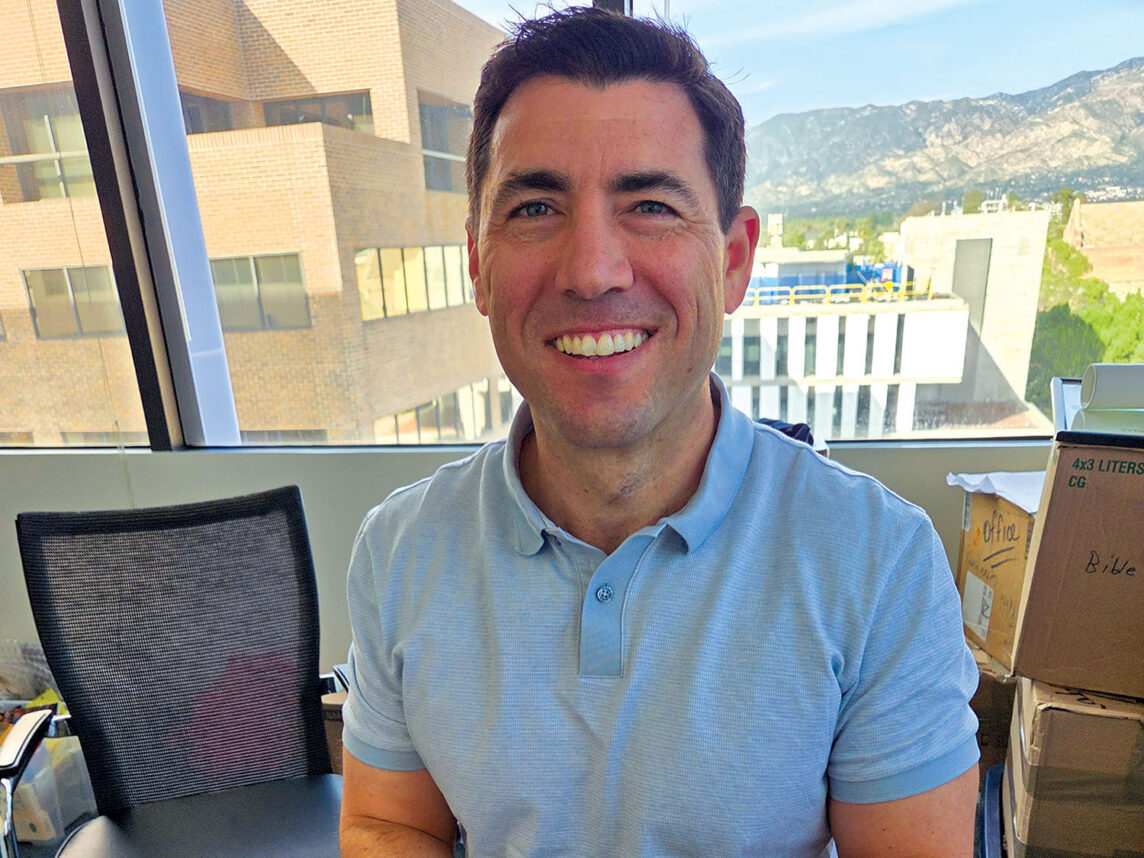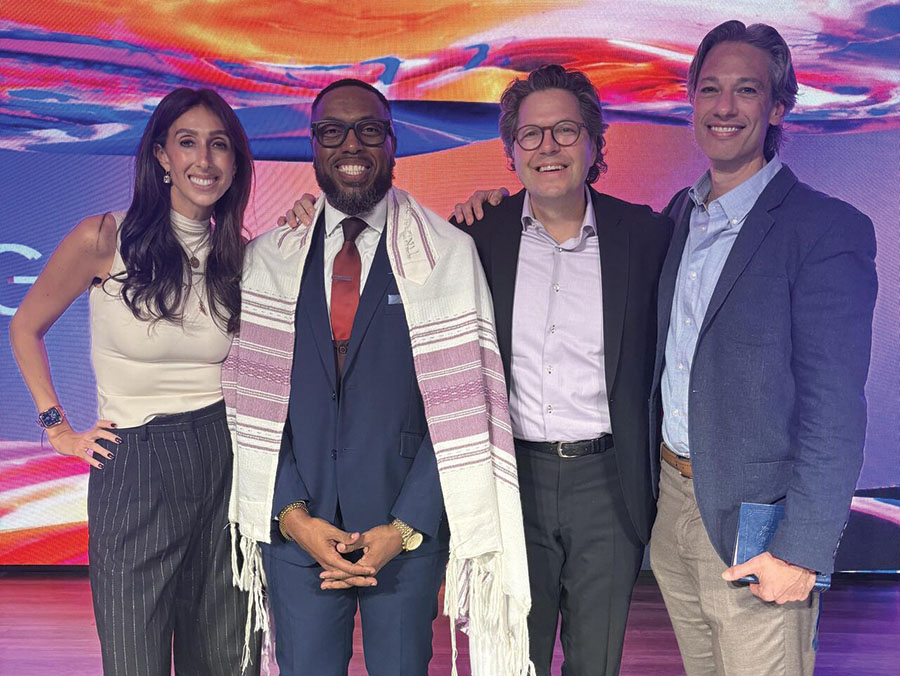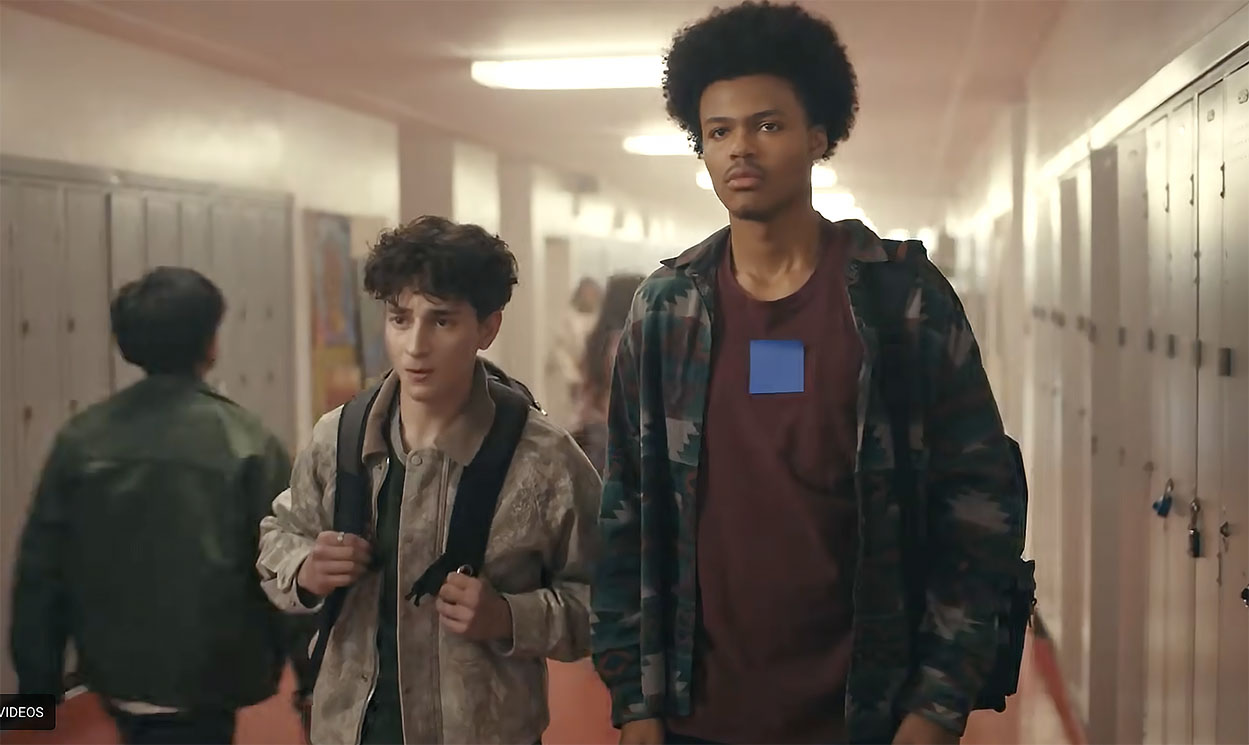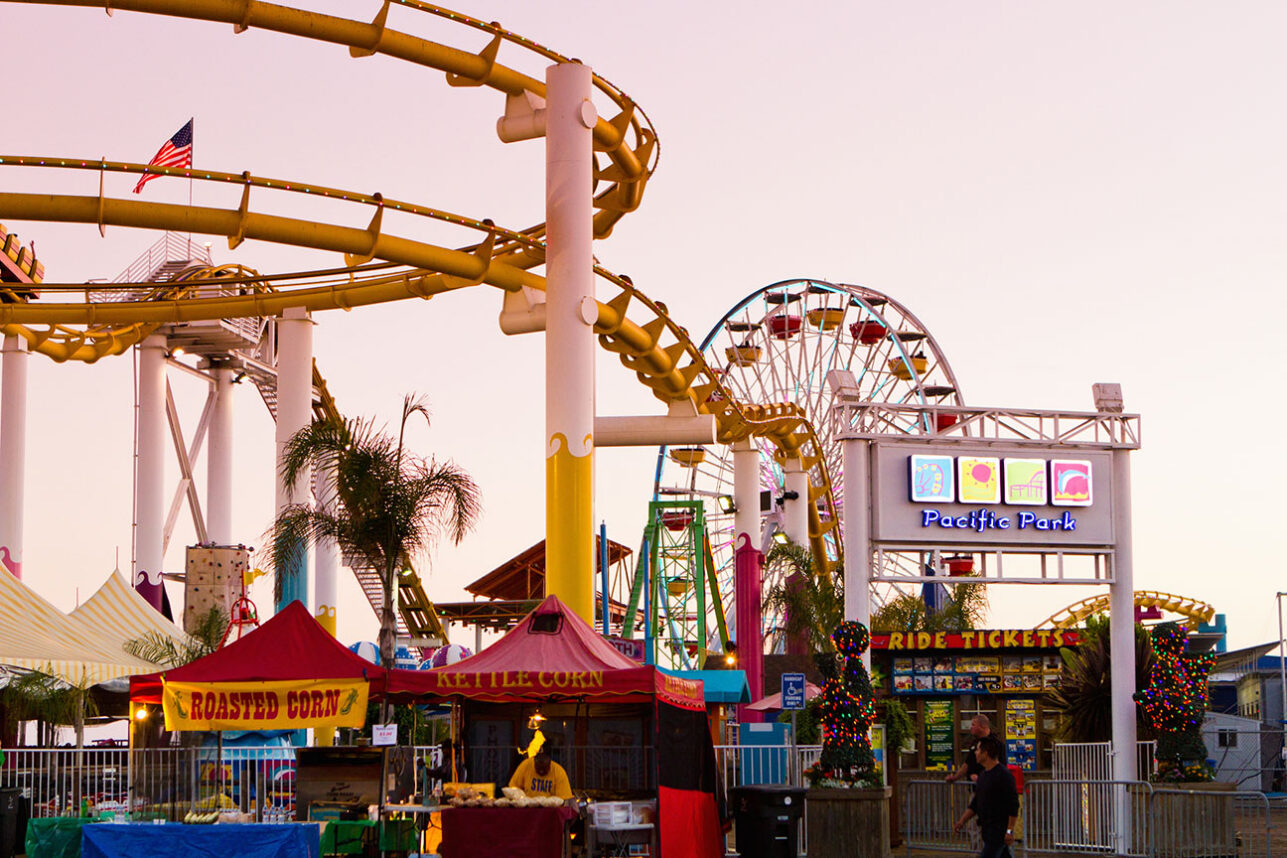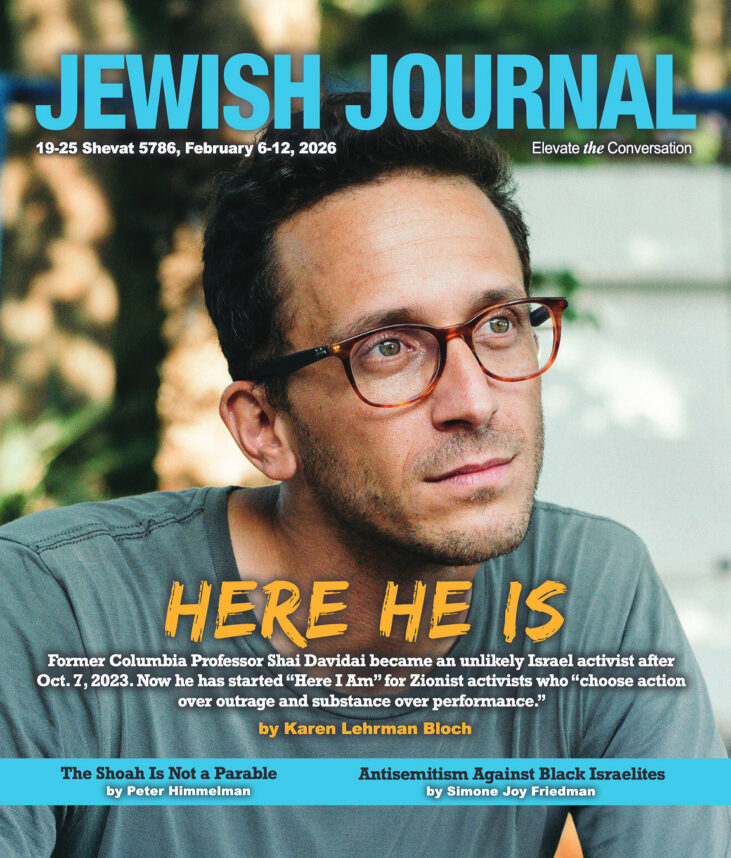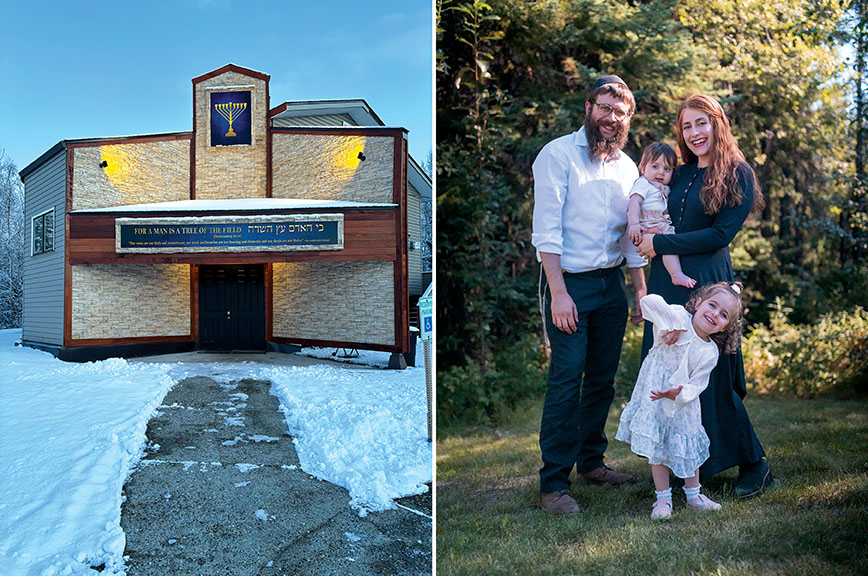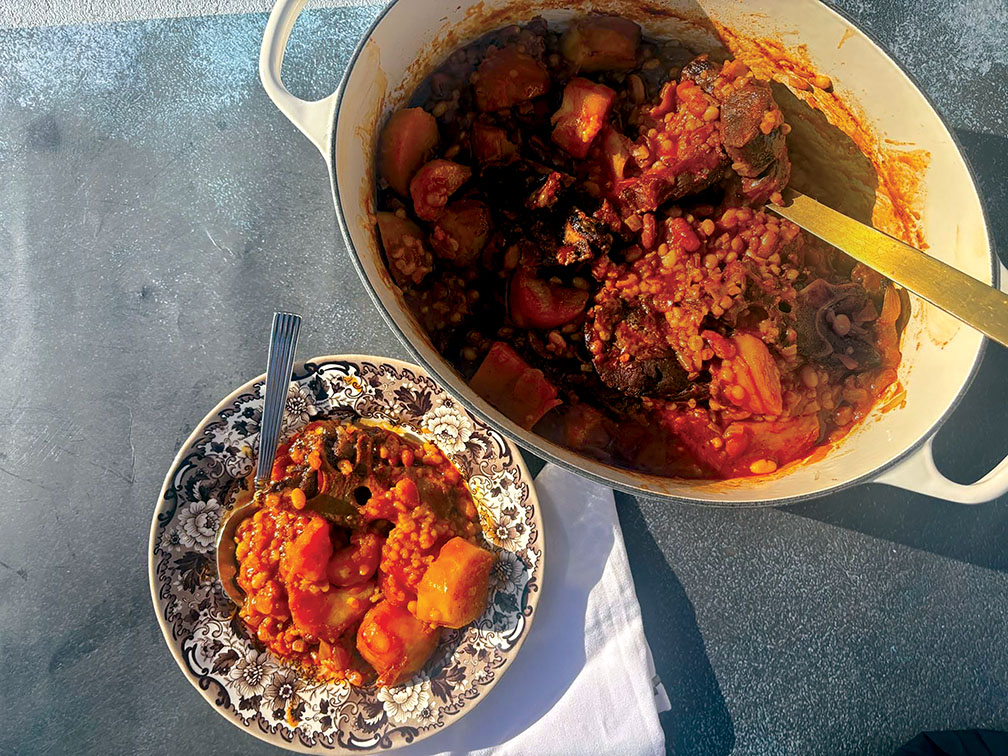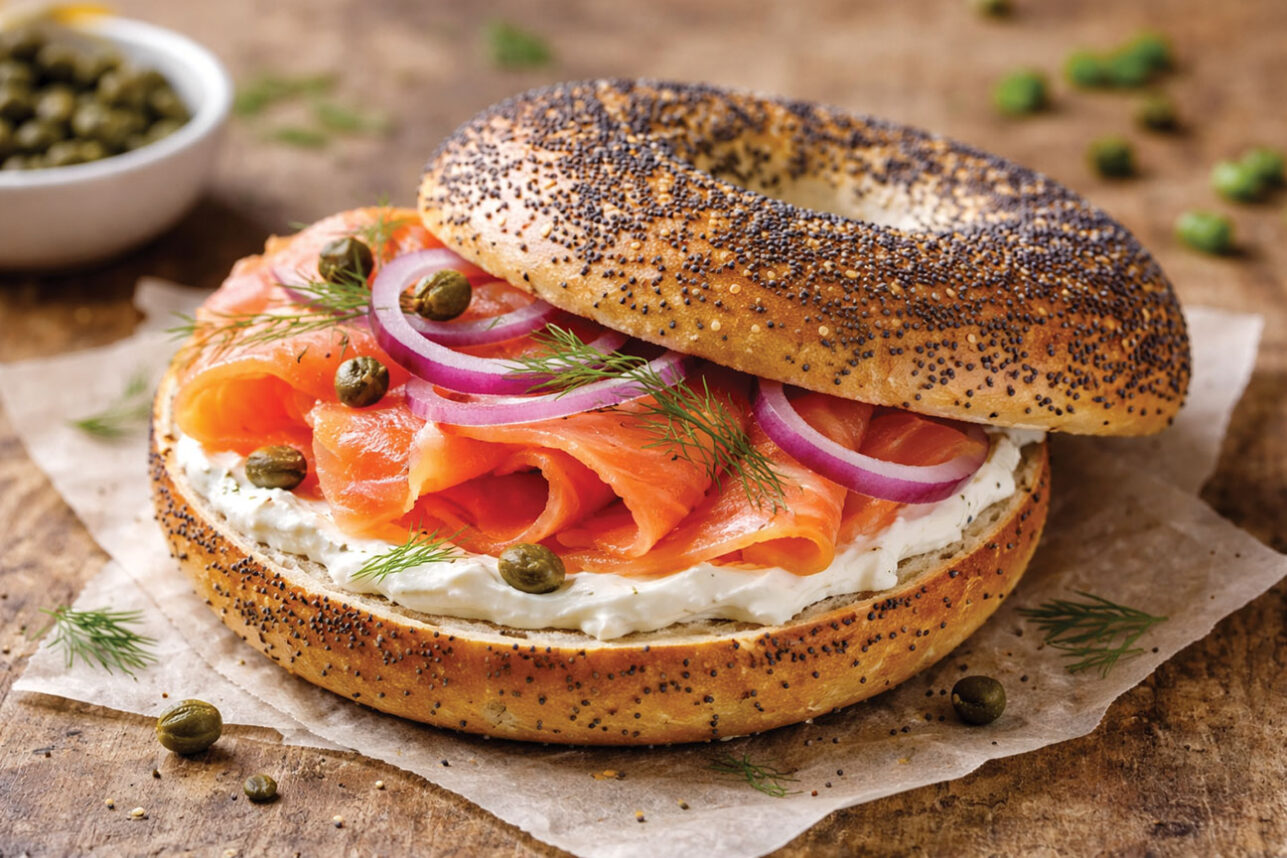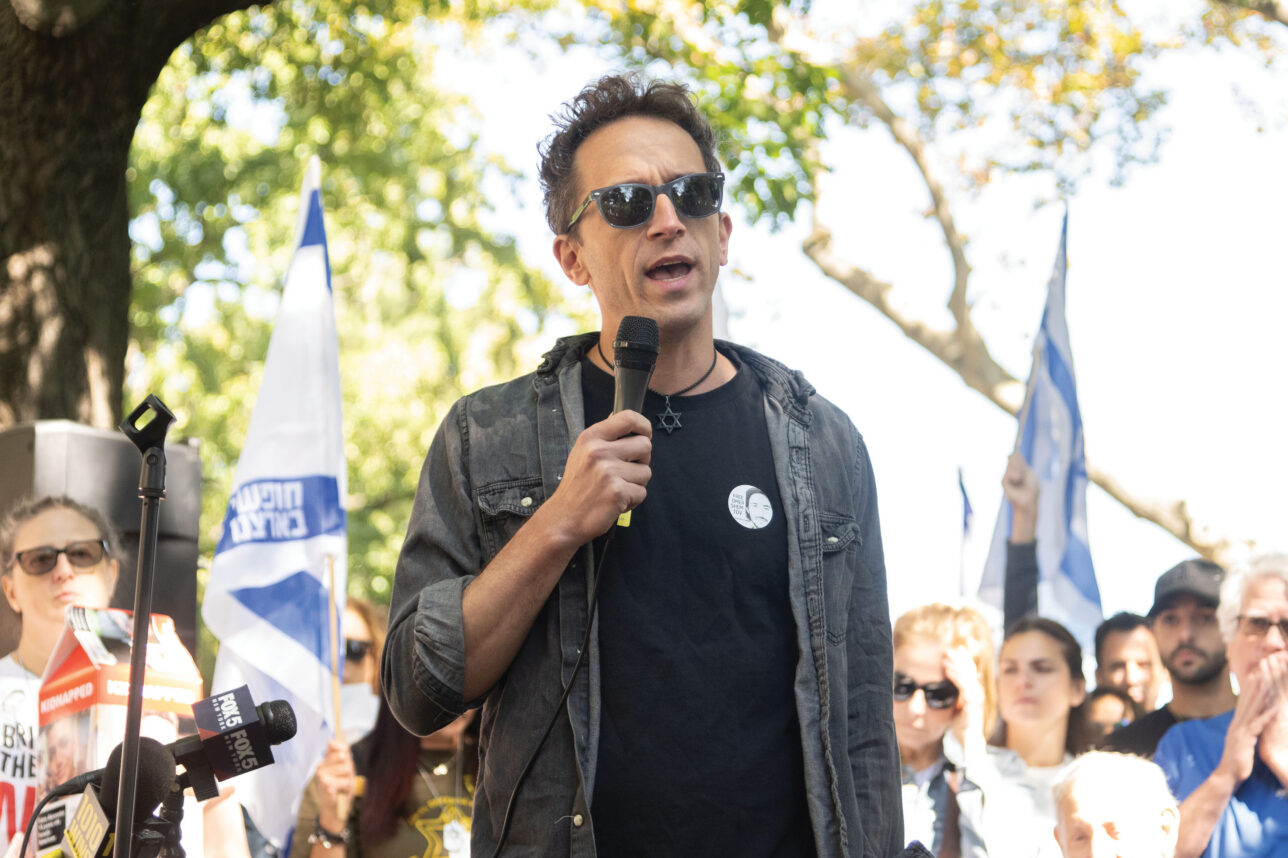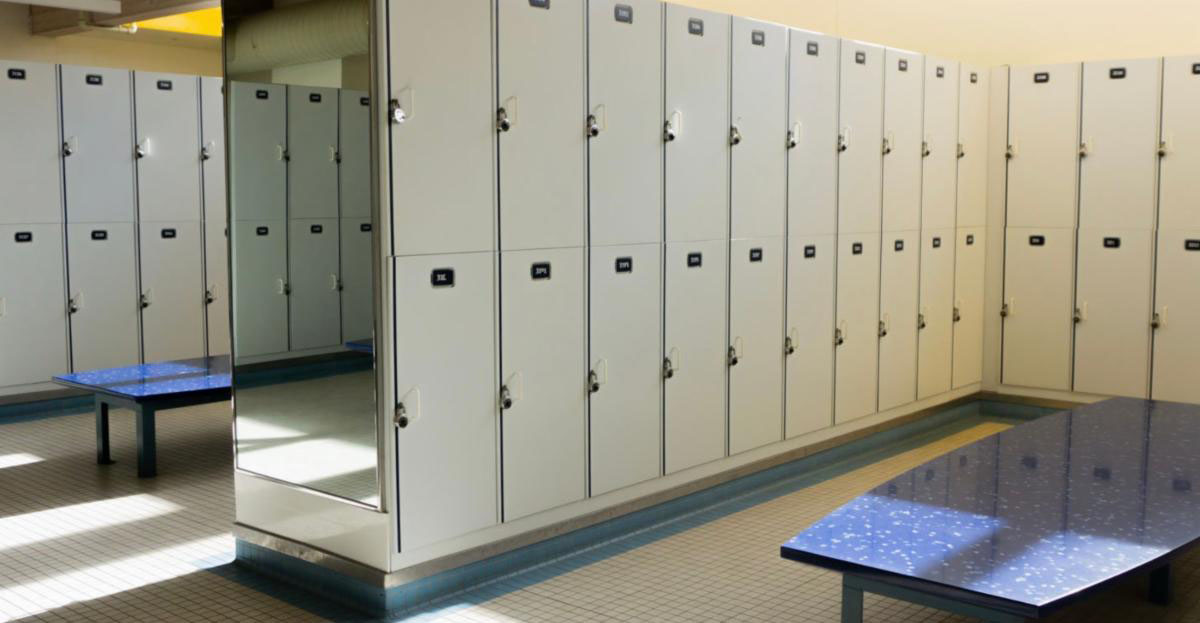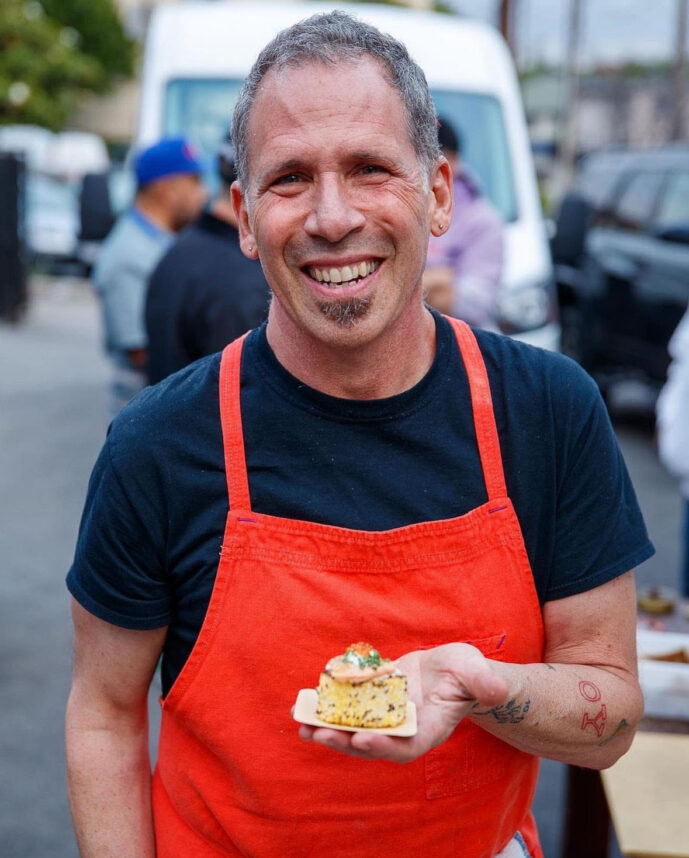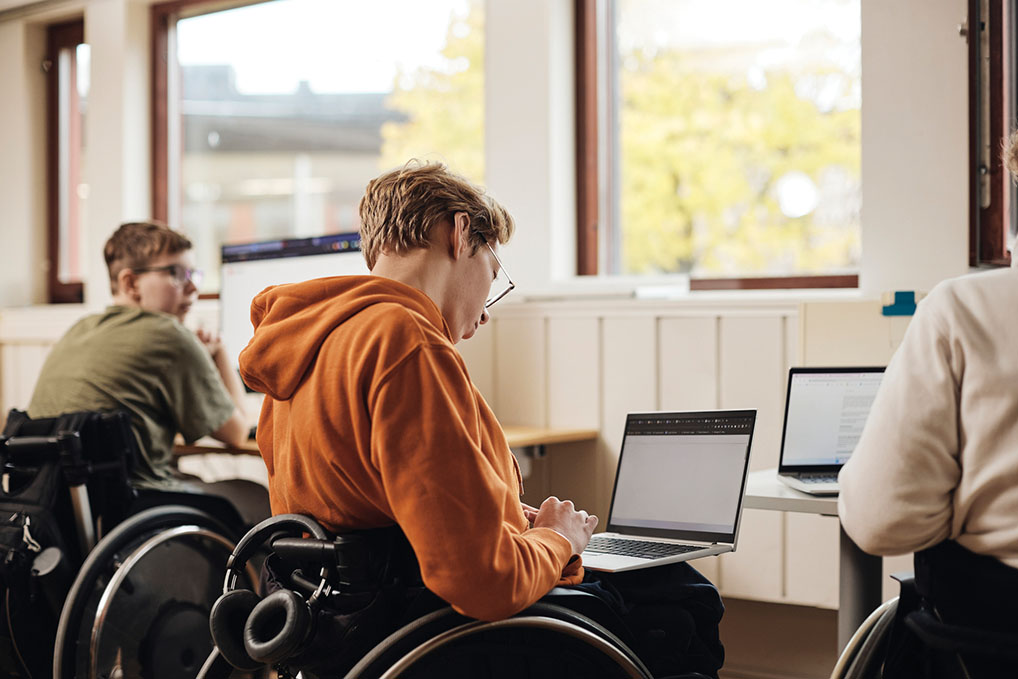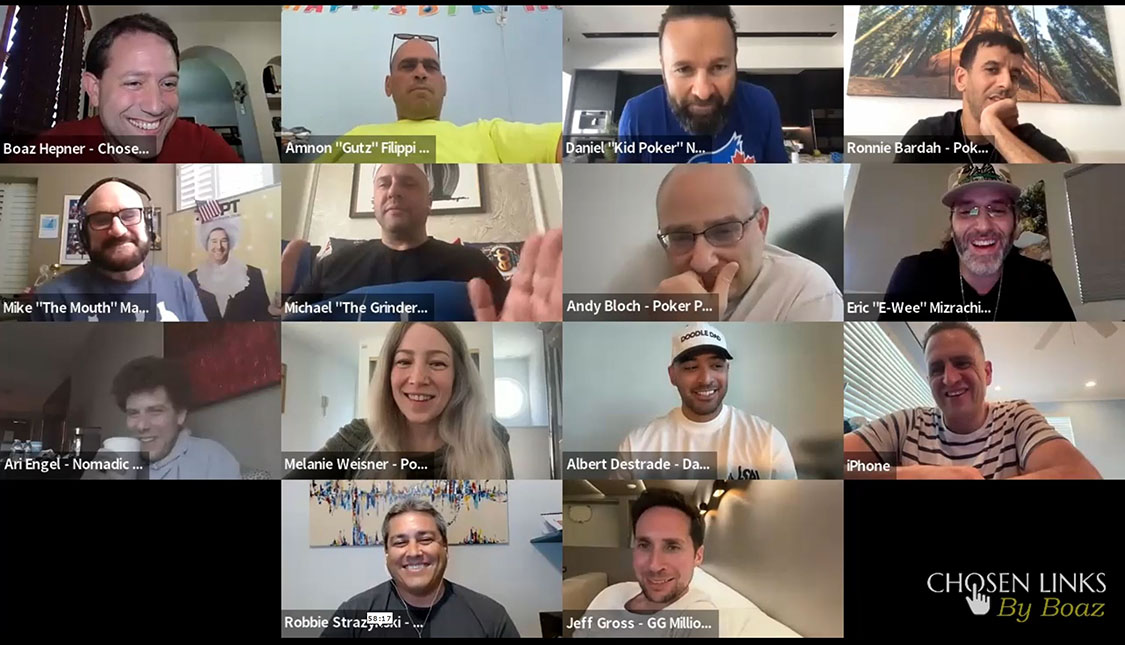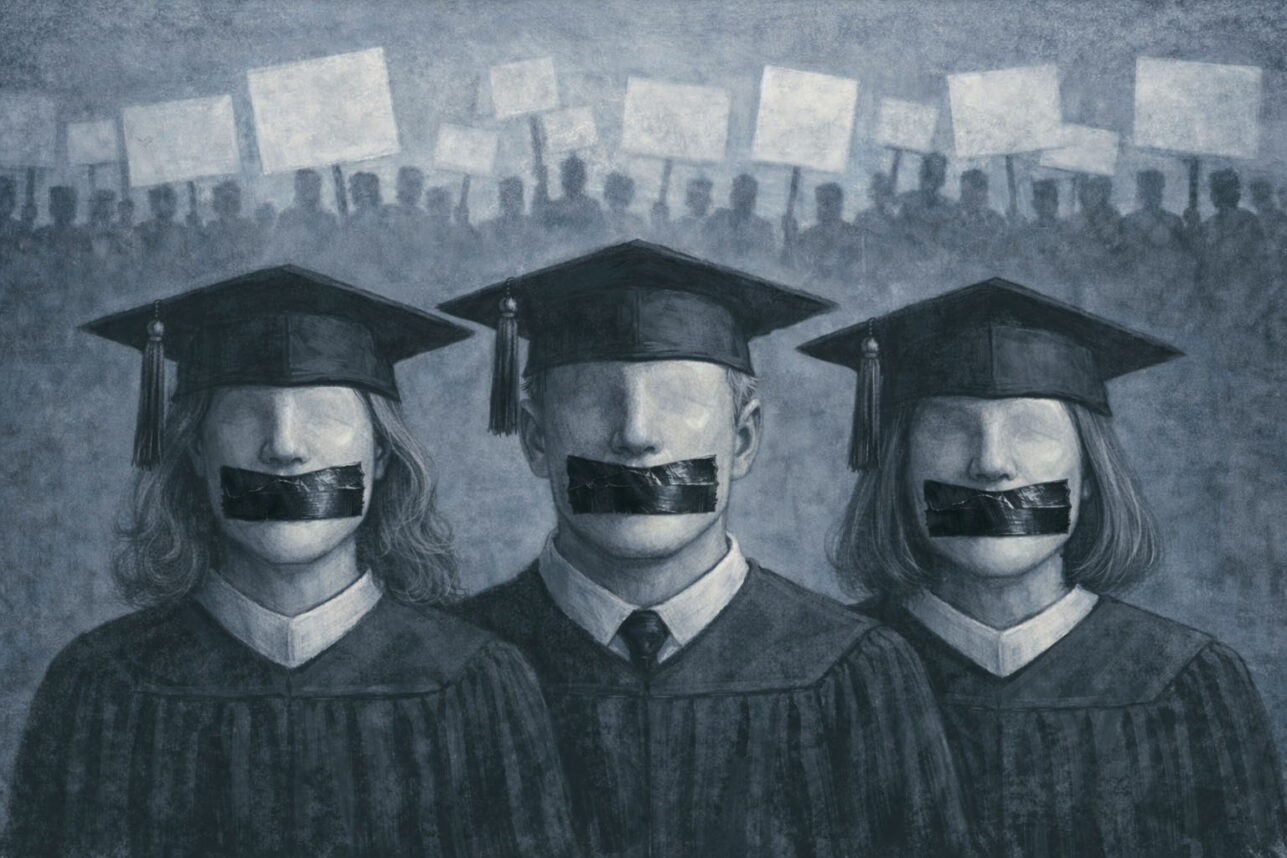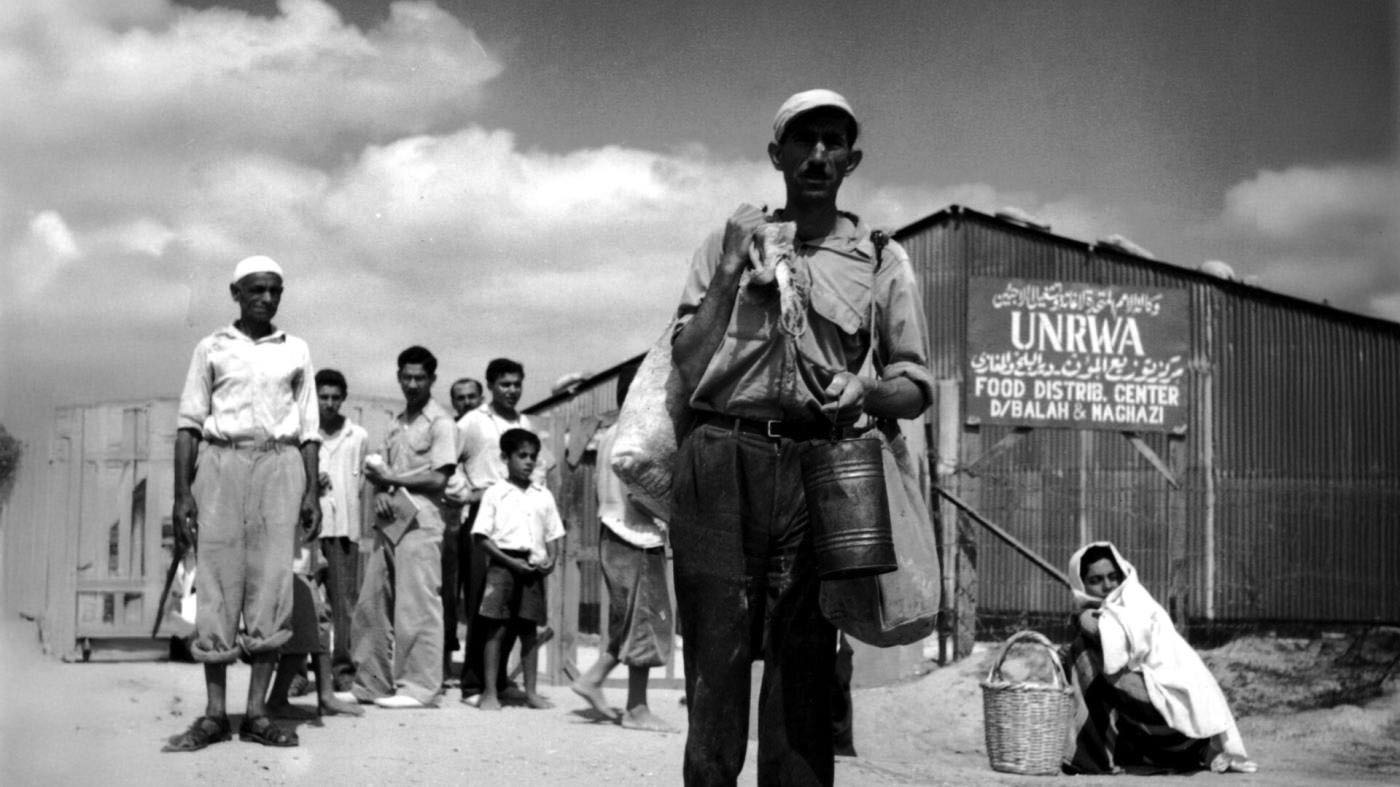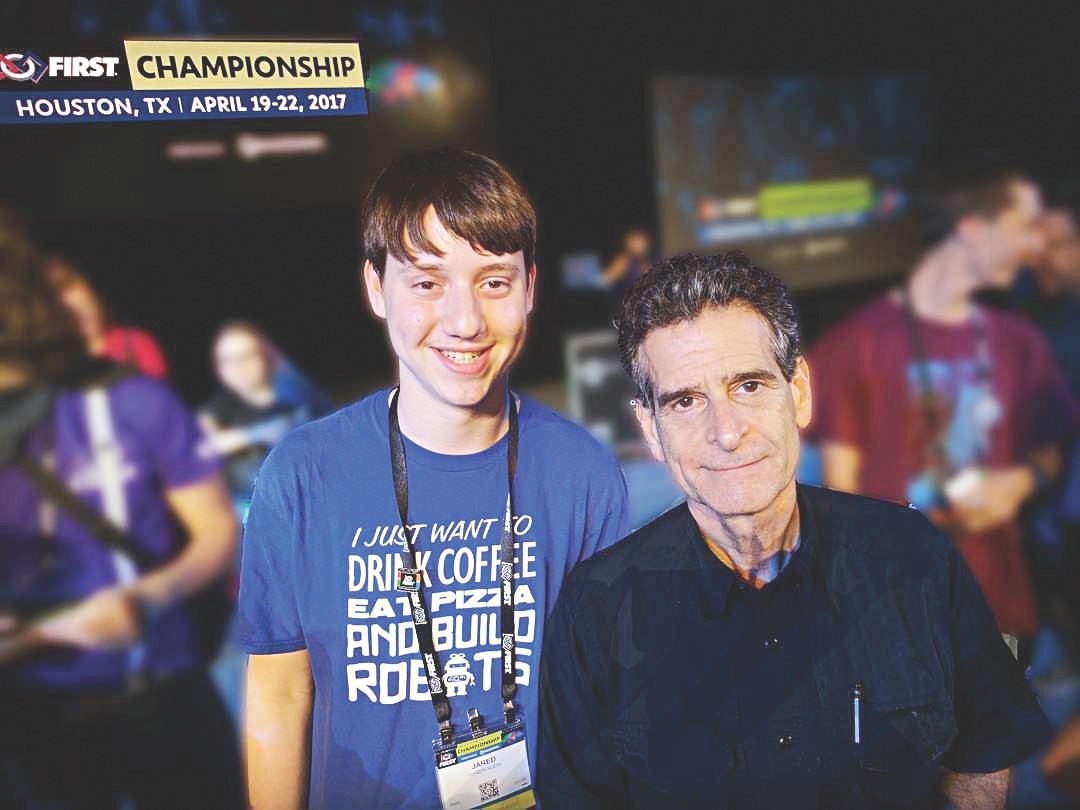
Participants from 88 countries take part in FIRST Lego League (FLL) regional tournaments around the globe — presenting functional robots and comprehensive research on real-world issues such as food safety, recycling and renewable energy.
And thousands of those competitors and their mentors — from at least 52 of those countries — rely on the online resources created by Jared Hasen-Klein, an 18-year-old senior at Milken Community Schools, to prepare.
“I just created stuff that didn’t exist for me,” said Hasen-Klein, who began competing in FLL as a 9-year-old. “It’s really cool to see all of the countries on a map when I look at my analytics.”
Hasen-Klein said he created his website, hub.jaredhk.com, in 2015 to serve an important need for competitors in the distinguished science and robotics program dreamed up by the toymaker Lego and the nonprofit For Inspiration and Recognition of Science and Technology (FIRST). Together, they’ve held more than 1,400 competitions since 1998 for kids ages 9 to 14.
The problem: a lack of resources made available online for competitors to help with understanding the rules and improving performance. Hasen-Klein’s site not only features the rules — which often take too long to be updated on the competition’s website, he said — but offers games to test knowledge of the rules, printable resources like scoring sheets that teams can use during practice sessions, and scoring calculators.
There’s even an online form that competition referees started using on their phones to transfer scores electronically rather than using pen and paper and running notes over to scoring panels.
On a recent weekend, Hasen-Klein even hosted an all-day workshop at Milken for 65 visiting students and teachers taking part in local FLL regional tournaments to provide an overview of the judging process and answer questions.
“What really sets Jared apart is his initiative to go a step further and offer help wherever it’s needed,” said Stephen Shapiro, Hasen-Klein’s robotics manager at Milken.
Wendy Ordower, Milken’s director of service learning, said Hasen-Klein is prone to this type of selfless donation of his time. He volunteered as a digital expert giving whatever spare time he had to Milken’s school paper, The Roar, for two years before eventually writing for them.
“He does all of this because he just says it’s fun,” she said.
No one pays Hasen-Klein to provide these FLL resources, including the constant updates he makes to his website in advance of regional tournaments that take place each November. Still, he shrugged off the notion that he goes above and beyond.
“I’ve made it a priority to do this stuff. It’s rewarding knowing that people are using my resources. If I’m able to do it, why shouldn’t I do it?” he said.
As a fifth-grader at Abraham Joshua Heschel Day School in Northridge, Hasen-Klein stumbled upon his school’s robotics team when he realized sports and after-school acting programs weren’t for him.
“One of FIRST’s slogans is that robotics is the varsity sport where anyone can go pro. It’s so fun and it shows kids that maybe don’t necessarily fit in somewhere that there’s something for them,” he said. “You don’t have to come in with natural talent. You can learn it. It’s fair to say that was me.”
Now, besides competing in the FIRST Robotics Competition (FRC), also operated by FIRST, for high school students with his Milken team, he co-coaches the Heschel team he first captained seven years ago. He also volunteers as a judge at competitions on many fall and winter weekends, including the FLL world championships, where he meets kids who use his site.
“When I attend the world championship, I walk around to the pit areas and do ‘market research,’ and it is always fun to hear from the teams that found my website,” he said.
Hasen-Klein’s expansive involvement with robotics has earned him several awards, including the Los Angeles Area Volunteer of the Year Award given to him by FIRST at last year’s FRC world championship in Houston.
Kathy Reynolds, who was Hasen-Klein’s first robotics coach at Heschel and now coaches with him there, gushed over her former pupil-turned-colleague.
“We are very proud of Jared for the gifts he brings to these organizations in the enormity of invested time, his generosity in sharing his expertise, and mostly his humble dedication as a role model,” she said.
One of the things Hasen-Klein finds most rewarding about helping kids prepare for FLL competitions is the potential impact he is having on kids passionate about science, technology, engineering and mathematics (STEM). FLL boasts on its website that its worldwide competitions essentially are producing “tomorrow’s innovators.” Hasen-Klein sees something similar at competitions he attends where youngsters tackle real-world issues.
“Being a judge at these competitions has been so cool. When you see the global innovations they are coming up with, it’s amazing and you wonder when they will be adopted by professionals. One that stuck out was do-it-yourself water filters for people in Third World countries or those affected by natural disasters,” he said. “These kids are getting real skills to go get STEM jobs in the future. It’s such a great starting point.”
As for his potential future in the STEM world, Hasen-Klein was mum.
“I still have no idea what I want to do,” he said. “I guess I’ll figure it out eventually.”








